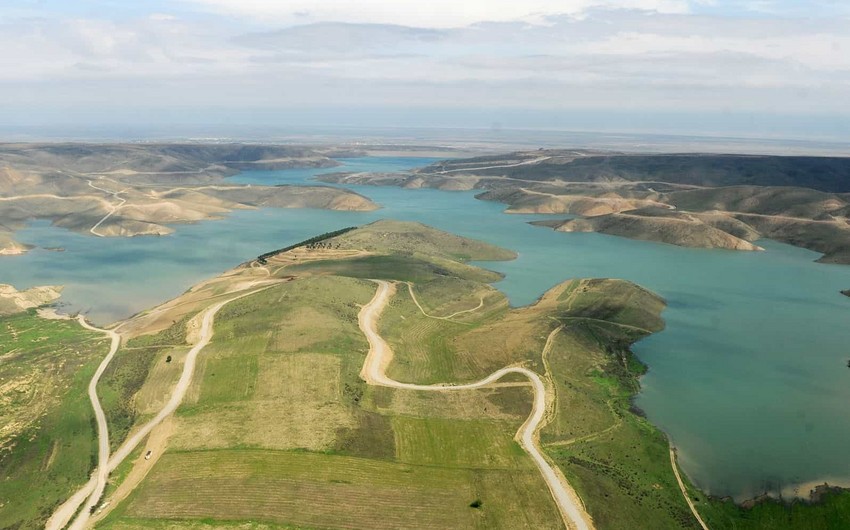Azerbaijan is set to fully transition to a unified management system for its water resources by the end of 2027, according to the National Strategy for Efficient Use of Water Resources approved by President Ilham Aliyev's decree, Report informs.
The strategy outlines plans to develop institutional mechanisms for transitioning to a unified management system for water basins and water facilities. The role of municipalities in managing water facilities will be enhanced, and the activities of Water User Associations (WUAs) will be improved.
The implementation of this system is expected to lead to the improvement of the Azerbaijan State Water Resources Agency's operations. Additionally, the optimization of regional administrations and organizations, as well as the adoption of a new water management model, are planned.
International best practices will be studied for hydrological and hydrogeological basins and water management complexes, and institutional management mechanisms will be proposed. By 2028, a pilot project based on the new management model is planned to be implemented in this area.
During the reporting period, a transition to a local management and service model for the operation, maintenance, repair, and water distribution of special water infrastructure facilities is envisaged.
Azerbaijan faces limited water resources, which are unevenly distributed seasonally and geographically. Moreover, a continuous decrease in water volume has been observed. Due to the impact of climate change and water withdrawals by neighboring countries, Azerbaijan's water resources have decreased by 26.4% between 1980 and 2023, amounting to 26.2 billion cubic meters.
Surface water resources entering the country through transboundary rivers have decreased by 35.9% to 13.2 billion cubic meters, local river flow has decreased by 23.3% to 4.6 billion cubic meters, and groundwater resources have decreased by 6.7% to 8.4 billion cubic meters.
These declines have been particularly severe in the Kur and Araz rivers and their tributaries. Between 2016 and 2020, the average annual flow of water entering the Mingachevir reservoir decreased from 344 cubic meters per second to 192 cubic meters per second (44.2%), while the average annual flow entering the Mil-Mughan hydro junction decreased from 134 cubic meters per second to 99 cubic meters per second (26.1%).
Hydrometeorological processes have also contributed to the decrease in water resources. Temperature increases and evaporation have reduced the volume of water flowing into the Caspian Sea. Since 2006, the water level in the Caspian Sea has decreased by an average of 11 cm per year. Although the long-term dynamics of precipitation across the country have been stable, a slight decrease has been observed in the last decade.
The average annual precipitation in Azerbaijan has decreased from 512.4 mm in 2002-2011 to 438.6 mm in 2012-2023. Simultaneously, the decrease in precipitation in neighboring countries, including Türkiye, Armenia, Georgia, and Iran, has led to a reduction in water resources both transnationally and locally.


 https://static.report.az/photo/b8b02e6f-5a23-3f12-8ea7-a8606a8dc9e3.jpg
https://static.report.az/photo/b8b02e6f-5a23-3f12-8ea7-a8606a8dc9e3.jpg

